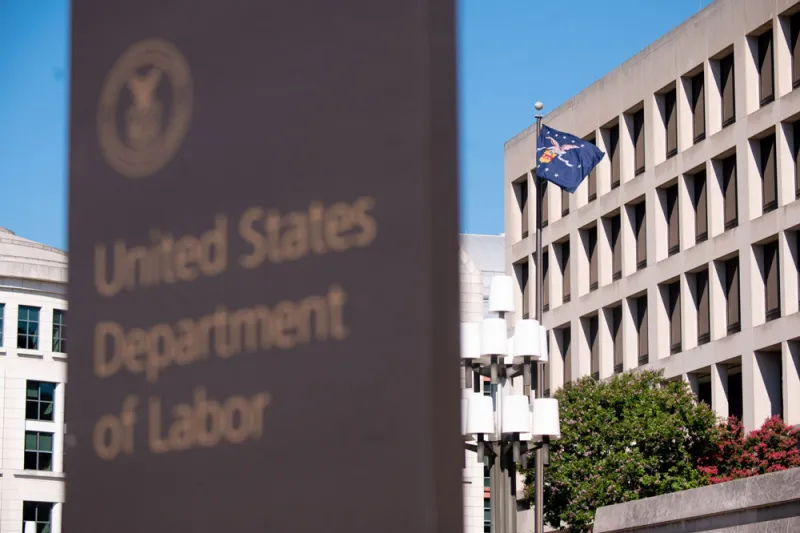The Department of Labor has proposed a solution in search of a problem by seeking to prevent 401(k) and other qualified retirement plans from offering funds from managers that consider environmental, social and governance factors as part of their due diligence analysis.
Without providing any data or credible academic research to support the need for this rule making, the DOL has proposed a rule that will harm plan participants — the very group whose interests DOL is meant to protect. By largely casting aspersions on the consideration of ESG criteria, it prevents fiduciaries from considering the full range of long-term risks.
Bad policies and practices harm companies’ reputations, affect consumers, and often lead to stock price declines. Climate change is widely seen as an environmental and financial risk for companies. Companies that fail to promote racial equity face real and meaningful challenges. Investors evaluate these and other ESG factors to benefit from companies with better policies and practices and more robust corporate governance.
It is thus not surprising that more than one of every four dollars under professional management is invested utilizing ESG criteria, according to the US SIF Foundation’s 2018 Report on US Sustainable, Responsible and Impact Investing Trends. Morningstar has reported that in 2020, flows into sustainable funds have outpaced flows to traditional funds.
ESG investments have proven effective at reducing risk and delivering returns comparable to those of non-ESG oriented funds. During the stock market collapse in the first quarter of 2020, Morningstar found that all but two out of 26 ESG indexes suffered fewer losses than their conventional counterparts. Studies from Morgan Stanley and MSCI have found no financial trade-off in the returns delivered by ESG funds relative to traditional funds. Additionally, a 2018 report from the Government Accountability Office reported that 88 percent of the academic studies it reviewed found a neutral or positive relationship between the use of ESG information and financial performance. Thus, consideration of ESG issues in retirement plans is the very definition of prudence.
The proposed rule demonstrates that DOL either doesn’t understand — or has chosen not to recognize — that ESG issues are financially material and reasonably likely to impact the financial condition or operating performance of a company. The proposal language also implies that fiduciaries may already be promoting social goals over routine financial analysis. However, DOL fails to cite a single instance that this has happened or any enforcement actions it has taken. The DOL does not reference any of the dozens of studies that demonstrate that incorporating ESG issues may lead to better investment company performance.
The rule change also establishes new requirements for investment analysis and documentation around inclusion of ESG options in retirement plans, making it harder and more expensive for plan fiduciaries to include ESG investments. DOL currently has no such requirements for any other kinds of funds.
The proposal is out of step with professional money managers, who increasingly analyze ESG factors precisely because of risk, return, and fiduciary considerations. The US SIF Foundation’s 2018 survey of sustainable investment firms in the United States reported that 141 money managers with aggregated assets of more than $4 trillion responded to a question about their motivations for incorporating ESG criteria into their investment process. Three-quarters of these managers cited the desire to improve returns and minimize risk over time. Fifty-eight percent cited their fiduciary duty as a motivation.
In 2015, the DOL carefully considered this issue and issued an Interpretive Bulletin clarifying that fiduciaries of ERISA-governed retirement plans “do not need to treat commercially reasonable investments as inherently suspect or in need of special scrutiny merely because they take into consideration environmental, social, or other such factors.” This established clear guidelines for fiduciaries who previously may have been reluctant to incorporate ESG or select an ESG mutual fund as a qualified default investment alternative (QDIA) out of fear of regulatory enforcement actions or litigation.
This rule making is not taking place in a vacuum. DOL also intends to change the rules around retirement plans and proxy voting; the SEC has or is currently addressing a range of ESG issues including the role of proxy voting firms, fund names, and shareholder rights.
This multi-agency effort leads to the logical conclusion that the Administration is seeking to cast disfavor on the practice of ESG investing at the expense of investors. Fiduciaries and institutional asset owners alike should encourage the DOL to withdraw this proposed rule and maintain the 2015 guidance.
Lisa Woll is the CEO of US SIF: The Forum for Sustainable and Responsible Investment. Judy Mares is the former Deputy Assistant Secretary for the U.S. Department of Labor.





